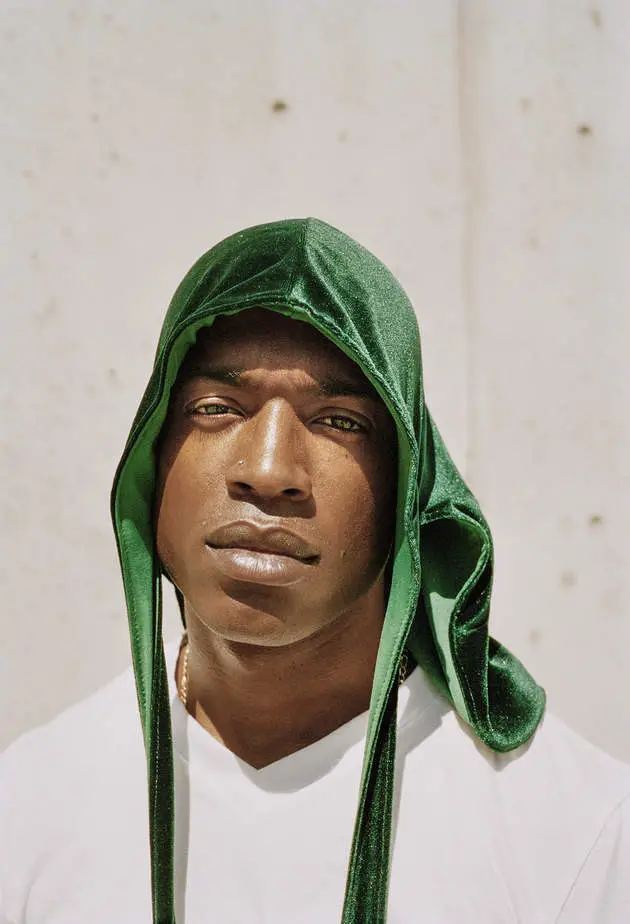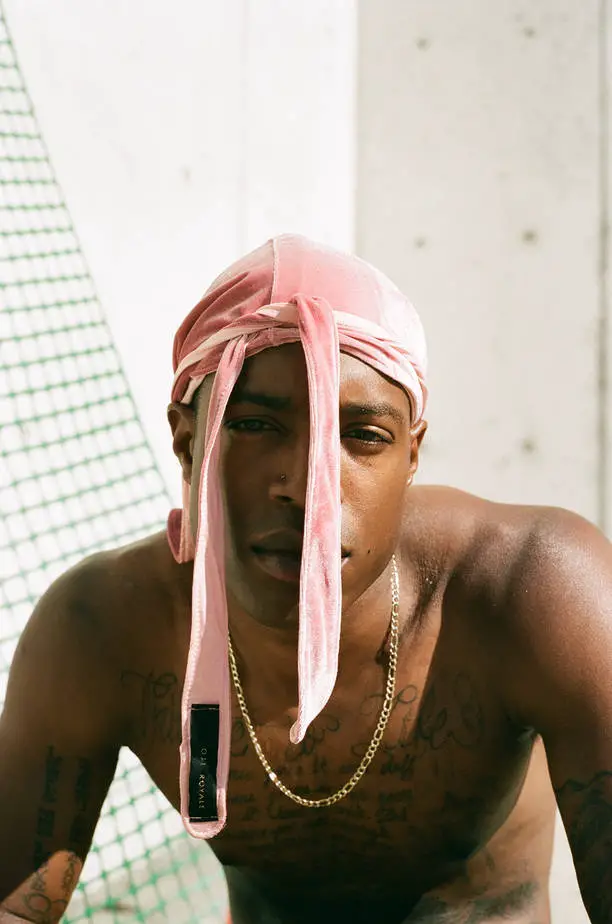BC: Tell us a little about yourself.
AW: Born and raised in North City St. Louis, Missouri. In 2014 I moved to Colorado Springs to work for VSCO as a curator. Fast forward October 2015, we ended up closing down the Colorado Springs office to relocate into the HQ with the remainder of the company in Oakland, California and I must say it was the perfect move for me and my family
BC: How do you enjoy Oakland so far?
AW: I love it. I enjoy the community that Oakland brings. I’ve meet at lot of individuals from all over. Some local and some are not. It’s like a hub I never imagined for like-minded artsy/driven folks like myself. I’ve learned a lot from individuals that are apart of the LGBTQ community as well as some local activist with a background in writing/history. Being here has definitely made me a better person.
BC: We know that you are featured in a show at SoEx right now, tell us a little bit about that?
AW: So SoEx, for those who don’t know, Southern Exposure is an artist-centered non-profit organization committed to supporting visual artists. I am one of the many artists that is a part of the Green Book Exhibition curated by Ashley Meyers. I have three portraits that are hanging in the space from a series I call We Matter. We Matter explores Black American beauty traditions among Black men. The intimacy that I depict in each photograph erases the possibility of threat often assigned to black men, and instead pushes the viewer to see the power of kinship within the Black community, seeking to expand notions of blackness by challenging the American socialization of black men.
BC: We think it is fair to say that when it comes to representation of people of color in the mass media, there are stereotypes we are played into. Why do you think it is important to represent black men in an authentic way?
AW: Me being a black man and photographing a black man, I am responsible for taking care of our bodies and how we are represented. Who else knows the black experience other than the black man? Similar to Ren Hang, RIP to him, He was an Chinese photographer who knew how to take photos of his people. I know the black body and I live the black experience, I just want to be responsible for the representation of us when it comes to photographing and be able to tell these stories.
BC: Through your work, we also can see that you show a softer side of men!
AW: Yeah! Shout out to Myke, he’s amazing. This is what he does and one of his many talents. I didn’t intentionally make them soft photographs. They just came out like that. It also helps that I knew Myke before photographing him, and we already had a relationship going into the shoot. We had chemistry and I also tend to work with people repeatedly.
BC: We know that you also created and produced a photo book about Ferguson. How did you get a chance to come around that?
AW: The Ferguson uprising happened while I was home and had just gotten back from a wedding. I just knew I had to go cover it and shoot it from my perspective. Again, photographing the black experience during such a tragedy is nothing like a person who’s not from the area and I wanted to show what was actually going on versus what the media was portraying. I showed good side of things, even though I had a few images that people would view as negative, but it was more about showing the truth. I shot an image of a young man displaying his wounds, who was shot with rubber bullets and dragged by the police. Behind him are news anchors interviewing celebrities that were on the scene. I was also photographing the peaceful protests that were rarely shown. Before any thoughts about producing a book I uploaded imagery to Instagram, Facebook, Twitter and VSCO. That wasn’t enough for me. I wanted to give viewers something they could actually hold and feel to really get a gage for what was actually going on during the events in Ferguson. It still blows my mind how far the book got and where it has led me as a photographer.
BC: Did you get to interact with the community while you were taking these photographs?
AW: I definitely did. I also met an amazing woman by the name of Stephanie Wash who works for ABC News. We established an amazing friendship during the uprising and remain friends until this day. She was basically looking for somebody to be with during the time because she was unfamiliar with the area. I got to talk to a lot of folks and hearing their stories and experiences. It was good to hear these stories from people I didn’t know.
BC: It seems like you’re always working on something new, tell us more about what else is going on.
AW: Yeah that’s the problem [laughs]. I’m doing a lot of things but at the same time I’m trying to slow down and have time for myself. It’s like a domino effect at times as a freelancer and working full time. The Bay keeps me busy and I’m not mad at it.
BC: Being a father now, do you think your photography influences your fatherhood?
AW: Yes, because when Emory gets older she’s going to learn that I was out creating important work. Photography has always been special to me but now the feeling of being an image maker is much more. She’s going to see many photos not only of herself growing up but images I took that are hanging in galleries, airports, and not to mention a book self published by me about a young man named Michael Brown who was gunned down by a white police officer. I want her to know I created this work for people that look like the both of us not for comments and likes on social media.
BC: We talked a lot about your work. When you’re not working: what are you doing?
AW: Working out, hanging with family and friends, you know just living a normal life. I love eating which is why I work out so hard to keep away from a dad bod. (laugh)
BC: Besides doing photography, you are the founder of Black Women Over Breathing. Tell us more about the community.
AW: Black Women over Breathing is more than a phrase. It is a movement that pays tribute to all who are Black women-identified, including artists, civil servants, single mothers, those incarcerated, and victims of police brutality and domestic violence. Though Black women are often degraded, underpaid, and overlooked, Black Women over Breathing celebrates Black women and all they have done to better the lives of those around them.
BC: We’re sure you are aware of happened to Nia Wilson. What are your thoughts on this tragic life lost?
AW: Yeah. I was in London when it happened. It honestly made me sick to my stomach. Being a huge supporter of black women and learning something like this so tragic on top of having a baby girl is terrifying. This experience in terrible and after learning about the man who murdered Nia made me realize we as black people don’t even get second chances. Once we are institutionalized that’s it for us, we are in the system damn near forever. My only hope is that the Wilson family gets justice and that white people all over who constantly see our black bodies get taken away from senseless acts have the heart to stand up and speak on behalf of their own people. My heart and prayers go out to the Wilson family.
BC: Do you have any keen advice for young artists?
AW: Consistency is key and I’m still practicing that. Give yourself a break from social media to create on your own. I struggle with that because I truly love seeing what others are creating. Traveling helps too. It has taught me so much through my career and helped me connect with creatives from many backgrounds. Have an open mind, listen, experience and most importantly have fun.
// adrianowalker.com.









